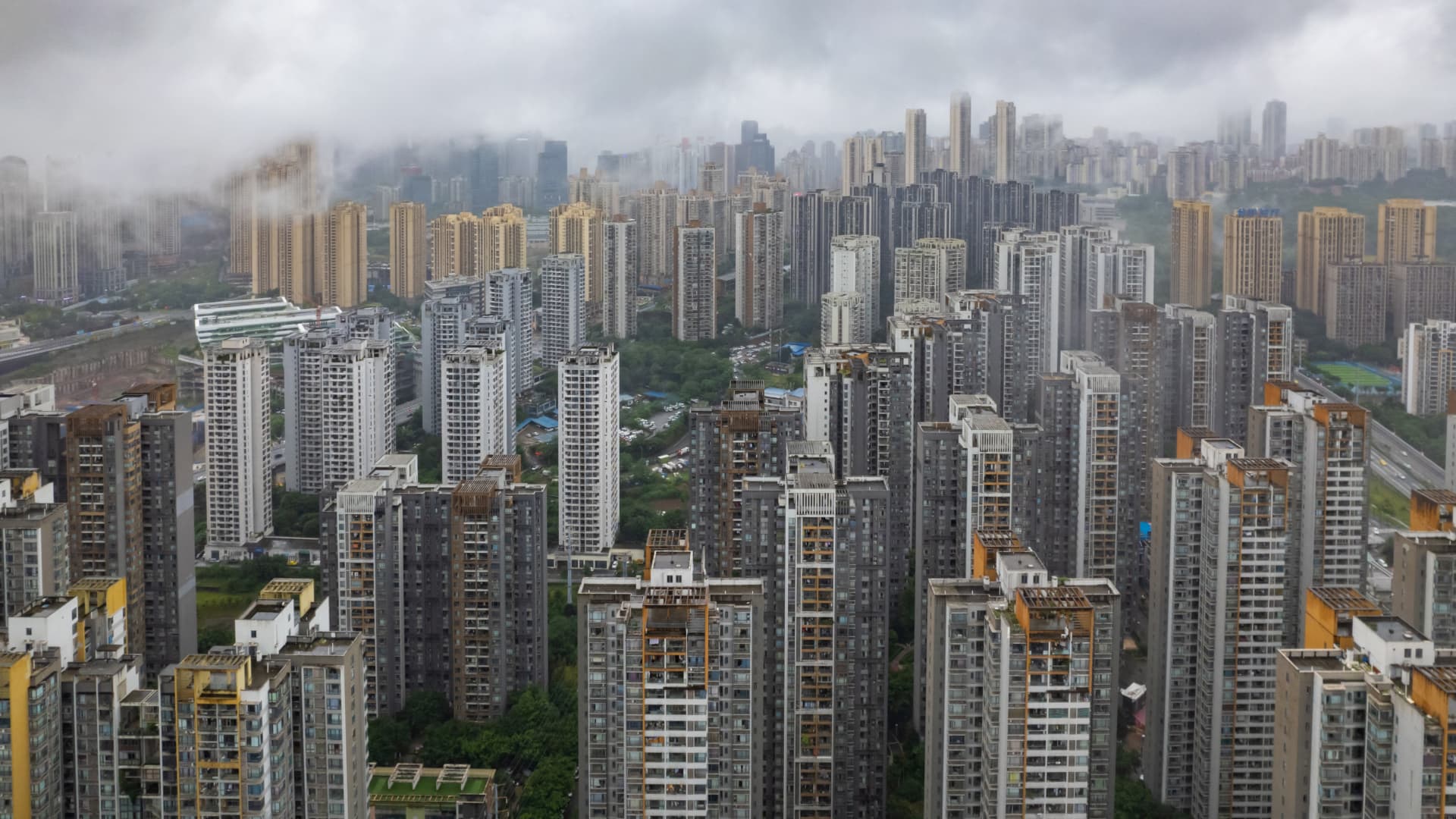This photo taken on September 24, 2023, shows residential buildings in Chongqing, in southwest China.

BEIJING — The last three months of the year are set to bring more clarity on China’s economic outlook and any government support — especially for the critical real estate sector.
China’s rebound this year from Covid-19 has slowed since April. Then over the summer, the property slump accelerated, despite many large cities easing restrictions for buying apartments.
“Gradually, the central government is going to loosen up on the supply side, too,” Yao Yang, dean of the National School of Development at Peking University, told reporters in a briefing Wednesday.
“Probably in half a year, we are going to see the housing market stabilize,” he said, noting regulators were previously “overshooting” in their real estate crackdown.
At its peak, China’s property sector accounted for about a quarter of the economy, which means the industry’s struggles have weighed on everything from consumption to local government finances.
Yao also expects the central government to allow local governments to borrow more money to pay back their long-term debt — which he said can help the economy recover fully by the middle of next year.
In 2020, Beijing tried to rein in real estate developers’ high reliance on debt with new restrictions on financing. Covid restrictions dampened homebuyer appetite, drying up an important source of cash for developers since apartments are typically sold ahead of completion in China.
Developers delayed construction on projects, further worrying homebuyers. By late 2022, several real estate giants had defaulted on their debt. This summer, top leadership started to signal a new tone.
“The decline in the real estate sector was the result of the government’s intentional measures to correct the bubbles in the market,” Yao said. He noted that floor space sold this year will likely be more than 500 million square meters less than what it was before the crackdown — and 200 million square meters less than what’s considered acceptable for the industry.
But he and other economists mostly don’t expect real estate to return to significant growth in the future.
Dan Wang, Shanghai-based chief economist at Hang Seng China, said she expects housing market weakness will persist and prices to fall in the coming years, but not abruptly.
Her analysis found an unofficial minimum price for sales of newly built homes across China. “Some developers would say they sort of know the baseline, they cannot give a discount of 15%,” she said.
“For [the] Chinese government, they would like to see more of a controlled decline rather than a sudden adjustment,” she said, noting significant social consequences if house prices plunge, since much of household wealth is stored in housing.
The combination of these measures could allow the economy to rebound modestly from 4Q23 onward.
This week, worries about China’s real estate sector persisted with highly indebted Evergrande running into more liquidity problems — along with reports Wednesday its chairman has been put under surveillance.
“A breakthrough on Evergrande’s restructuring, yeah it’s going to make a difference,” Clifford Lau, portfolio manager at William Blair, said in a phone interview Monday.
“But is it going to re-price the entire bond sector to high single-digit[s], to 20 cents to a dollar? I think that is a very long journey.”
Denial of responsibility! Vigour Times is an automatic aggregator of Global media. In each content, the hyperlink to the primary source is specified. All trademarks belong to their rightful owners, and all materials to their authors. For any complaint, please reach us at – [email protected]. We will take necessary action within 24 hours.


